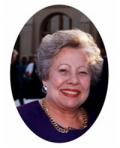Not everyone opts for the traditional (and expensive) method of obtaining a legal education. Some opt for the very traditional method instead. How traditional? Think ''Abraham Lincoln.'' Lincoln was one of many who took the bar exam and became a practicing attorney without attending law school. And it is still possible to do the same today.

Isabell Wong Flores is living proof that aspiring attorneys can accomplish this feat. A friend of Flores's recommended that she look into the alternative to law school.
"I always thought about going through regular law school," said Flores. "But when I thought about it, I thought that it's not fair to me or my parents. I did not want to put myself or anyone else through that financial burden."
So after Flores graduated from St. Mary's College of California in Moraga, CA, with a B.F.E. in Business Administration with a minor in communications with a media law emphasis, she looked into a law apprenticeship program and decided it was a great option, considering how much more affordable it was. She initially wanted to go into acting and the entertainment industry but saw the positives of being a lawyer.
"It was too great of an opportunity [at the time] to pass up," she explained. "It was a once-in-a-lifetime opportunity to get my law degree without going to law school [and without being in debt from it]. I don't regret it at all."
The apprenticeship program Flores completed, which is better known as the California Law Office Study Program, is offered through California's state bar association. About seven states, including California, still offer apprenticeship programs, which can also be referred to as "reading the law," which reportedly started in the 1950s. Students make their own course schedules and buy their own materials, and then the state bar association approves or rejects their course plans, according to Flores. Then, after the first year, they take the first-year students' examination, known as the "baby bar exam," which they have to pass in order to continue with the program. The test covers various areas of law that pertain to what they should have learned during the first year of law school.
"You work for free for the lawyers; then you study to pass the bar exam at the end," explained Flores regarding how the program works. "I created my own course of study that the [state bar association] had to approve, and I got tested once a month. I also purchased bar review materials. I bought the same books and did my own course outline."
Flores essentially worked for a lawyer without receiving pay for four years. She could choose between working for an attorney or working for a judge, and she opted to work in a law office under a mentor she personally chose. The process is not easy, and the bar exam pass rate for those who follow this method is not as high as that of students who went to law school.
"I recommend this [program] to serious and committed people only," Flores asserted. "If [you] are determined and have a great mentor, then it's a good option."
She did say, however, that it is a big blow to your personal life.
"You have to be willing to give up a lot of your social life, but it's worth it in the long run because you get your law degree and you have no debt," she said. "You need to be independently motivated since you follow your own study plans. You have to be focused and have a lot of discipline, and you work for free. I had to work full time at another job [along with the job I worked at for the program]."
Flores also said that it's essential to choose the right mentor.
"It's a huge sacrifice for the attorney, so you have to find an attorney who's willing to work with you," she said. "[It's a good thing] not only for minority students but to anyone who's really determined to have the opportunity to get a higher level of education," Flores explained.
Most importantly, Flores said, she has no regrets about her decision to pick this route.
"Do whatever it takes to get that law degree...this is out there, and it's a good option," she said.
Now 29, Flores is currently looking for a position that will allow her to make good use of her degree.
"It's a little overwhelming because there are so many things you can do with a law degree," she said. "It's great to have so many choices, and the world is open to [many possibilities]."
Other notable people in history besides Abraham Lincoln who became lawyers without attending law schools include former Chief Justice of the Supreme Court John Marshall and the late U.S. Senator James Strom Thurmond, just to name a couple.
Each state has different guidelines, and there are some minimal fees to participate in the program, so contact your local state bar association for more information.
CLICK HERE TO SEARCH JOBS IN OTHER STATES!




